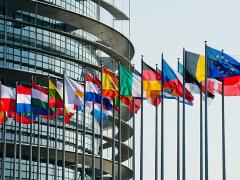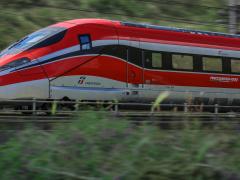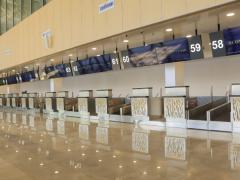IATA has expressed disappointment in a recent coalition calling for a tax on premium-class flyers.
Last month, France, Kenya, Barbados, Spain, Somalia, Benin, Sierra Leone and Antigua & Barbuda announced the coalition with support from Global Solidarity Levies Task Force (GSLTF) and the European Commission. The proposal focuses on introducing a ticket levy on premium-class flyers to improve domestic revenue of developing countries and support international solidarity
IATA’s assessment of the GSLTF’s proposals reveals severe deficiencies, including:
- The premium flyer levy is predicted to generate over $90 billion (R1,5 trillion) per year, approximately three times the airline industry’s global estimated profit in 2024. Airlines’ thin nett profit margin must also be considered in any policy deliberation.
- The industry already has a multitrillion-dollar commitment to sustainability, with airlines committed to achieving nett zero carbon emissions by 2050. Increasing aviation taxes will limit the industry’s ability to invest in long-term sustainability solutions.
- The proposal disregards the role of the Carbon Offsetting and Reduction Scheme for International Aviation (CORSIA). The GSLTF states were among those that created CORSIA under the principle that it would be the single harmonised measure to manage international aviation’s carbon emissions. The tax would undermine CORSIA and lead towards a fragmented and inconsistent global framework. All states should focus on making CORSIA successful rather than advancing overlapping measures.
- The GSLTF has not released any assessment of the economic impact of its proposed levy or explained how the funds would be used and the broader impact it will have on all travellers. While aimed at premium travel, the proposal overlooks this segment’s role in sustaining route networks. Taxing it could disrupt connectivity, raise costs for all travellers, strain airline finances, and ultimately slow economic growth.
“The airline industry is an economic catalyst, not a cash cow. Yet governments casually suggest a tax on flyers that is three times the airline industry’s annual profit without considering the real-world side effects for an industry that is a lifeline for remote communities, invigorates tourism markets and links local products to global markets,” said Willie Walsh, IATA’s Director General.
“The GSLTF says that their solidarity levies won’t increase the cost of living for ordinary citizens. This is untrue. If followed, it will increase the cost of air travel for all travellers and do more harm than good. The industry is doing everything possible to achieve nett zero carbon emissions. The last thing these efforts need is a $90 billion gut punch of a tax,” said Walsh.













